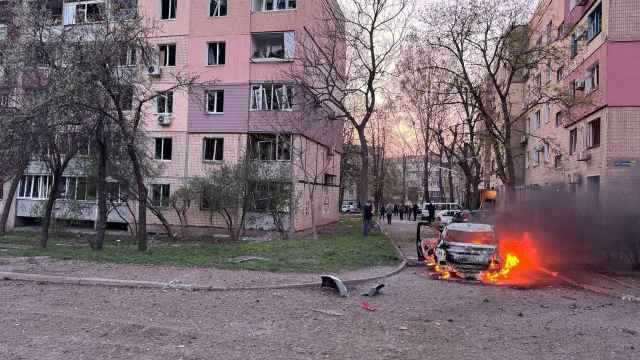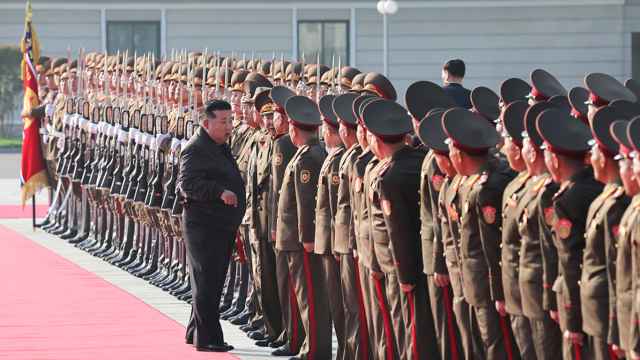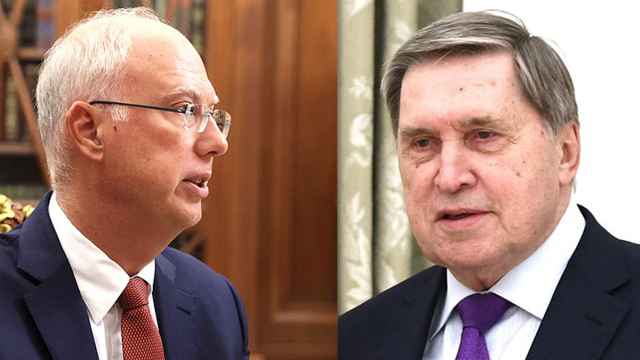Magnit, the country's No. 2 food retailer by sales, is targeting Siberia as it presses on with a rapid expansion into the country's regions, which it believes can deliver at least another four or five years of strong growth.
Sergei Galitsky, who opened his first shop in 1998 and has built Magnit into a 6,000-store empire, said in an interview he would stick to a winning formula of targeting low- to middle-income shoppers mostly through convenience stores.
"Do you really think that many people in this country earn more than $2,000 per month?" he said, sitting on a couch in the lounge of a five-star hotel a short walk from the Kremlin. "When we cut the price for bananas by 1 ruble, we sell 100 tons a day more. ... There are people who live within their budget."
Magnit turned over $11.4 billion in 2011, compared with $15.5 billion at Russian grocery leader X5. But it is growing three times faster, opening three stores a day, as X5 struggles with its shift away from acquisition-led growth and underperforming hypermarkets.
Magnit expects revenue growth, which has occurred at an annual rate of about 40 percent in recent years, to slow to 30 to 32 percent this year, and the company gave preliminary guidance last month that growth would ease further to 25 to 27 percent in 2013.
Galitsky, Magnit's chief executive and 42-percent shareholder, said that was only natural for a maturing business. He said there was still plenty more mileage in the company's existing strategy because Magnit has only a 4 percent share in a highly fragmented market.
Investors seem to agree, as Magnit, based in the southern city of Krasnodar, where Galitsky owns a top-flight football team, has a market value of $13.5 billion, more than double X5's.
"We have a bunch of ideas how to keep the company growing," said Galitsky, who is ranked as Russia's 25th richest man by Forbes magazine, with an estimated fortune of $4.9 billion. "If investors like them, we can guarantee that we will easily spend some $2 billion per year in capital expenditures for the next five to 10 years."
Expanding into Siberia from Magnit's central, southern and northwestern heartlands was natural, but it would be premature to go farther east, given the logistical challenges, Galitsky added.
Magnit will finance Siberian expansion from existing capital spending plans, using its owns funds and debt. Galitsky said he saw no need to raise capital by selling more shares.
Magnit is grabbing business in towns from outdoor markets, kiosks and independent shops. It plans to add 800 to 1,000 convenience stores, up to 60 hypermarkets and 500 cosmetic shops next year, similar to the expansion this year.
Russian retail law, seeking to promote competition, caps market share at 25 percent, meaning a firm can't open new stores in a region when it hits the ceiling.
Galitsky is a critic of the clause.
"Constraining business is absolutely wrong," he said. "It impedes our development. It is hard to control; there is massive abuse. [This type of law] is nonexistent elsewhere in the world."
Most Magnit outlets are convenience stores with basic product ranges, which allows the company to open in less densely populated areas, including those with just 3,500 inhabitants.
Galitsky for years avoided entering Moscow. So far, only 32 Magnit stores are in the capital. Although the regional focus allowed him to take advantage of a lack of competition, he acknowledged that spurning Moscow was a major miscalculation, one he is now putting right.
"We missed the capital, came too late," he said. "We were slow to understand what a rich customer wants, that we can work with more expensive lease rates with higher salaries."
In a country where many billionaires made their fortunes through political connections, Galitsky said corruption was not his biggest business headache. Russia's declining population, now about 140 million, and excessive legal restrictions pose greater challenges, he said.
Nonetheless, he praised Russia's stable fiscal regime and low business taxes and complained about negative perceptions of Russia abroad.
"You can do business here," he said. "There are certain problems, but I don't know a single country where there are none."
Related articles:
A Message from The Moscow Times:
Dear readers,
We are facing unprecedented challenges. Russia's Prosecutor General's Office has designated The Moscow Times as an "undesirable" organization, criminalizing our work and putting our staff at risk of prosecution. This follows our earlier unjust labeling as a "foreign agent."
These actions are direct attempts to silence independent journalism in Russia. The authorities claim our work "discredits the decisions of the Russian leadership." We see things differently: we strive to provide accurate, unbiased reporting on Russia.
We, the journalists of The Moscow Times, refuse to be silenced. But to continue our work, we need your help.
Your support, no matter how small, makes a world of difference. If you can, please support us monthly starting from just $2. It's quick to set up, and every contribution makes a significant impact.
By supporting The Moscow Times, you're defending open, independent journalism in the face of repression. Thank you for standing with us.
Remind me later.





